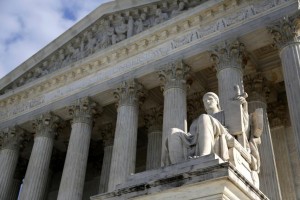 The Dallas Morning News has an important new report on the U.S. Immigration Court backlog, highlighting the case of a Korean man who “… has been in America long enough to raise two sons and run a family-owned doughnut shop in Irving. After years of worrying, he thinks he’s about to find out his fate. Things look promising. But [the judge] sets a merit hearing for Dec. 6, 2017.”
The Dallas Morning News has an important new report on the U.S. Immigration Court backlog, highlighting the case of a Korean man who “… has been in America long enough to raise two sons and run a family-owned doughnut shop in Irving. After years of worrying, he thinks he’s about to find out his fate. Things look promising. But [the judge] sets a merit hearing for Dec. 6, 2017.”
Reporter Dianne Solis makes the point that the man is “… caught in an immigration court system that is bursting with huge caseloads and stressed by a seemingly endless shortage of judges. The U.S. immigration court backlog is at a record 474,000 cases — nearly triple the number from a decade ago. The average case now takes two years to wind through the courts. Some can take five.”
One interesting think is that the report notes that the Immigration Court backlog “annoys both the political left and right. U.S. Rep. Jack Ratcliffe, R-Heath, called it a ‘de facto amnesty’ at a recent congressional hearing. Immigrants live in the U.S. for years waiting to find out whether they can, well, live in the U.S.”
But, the report continues, “… Democrats complain that the courts need more money to operate smoothly. The nation’s immigration courts have long functioned like an orphaned child of the immigration system. The courts’ budget equals about 2 percent of total federal funding for immigration law enforcement this fiscal year. Underfunding the courts ‘undermines justice,’ U.S. Rep. Sheila Jackson Lee, D-Houston, said at the same hearing.”
The DMN also backgrounds that Immigration Court is civil, so there’s no guarantee of an attorney as their would be in criminal court. That’s important because, Solis notes, “… an unrepresented immigrant has a greater chance of losing, of being ordered removed from the U.S. That came into harsh light recently with the surge of Central American mothers with children. In a study by the Transactional Records Access Clearinghouse, a Syracuse University nonprofit, of such cases, about a quarter of those who were represented by attorneys were allowed to stay in the U.S. Only 1.5 percent of those who didn’t have attorneys were allowed to stay.”
The story is basically an indictment of the whole Immigration Court process with the only good point being a promise of more judges soon if certain things work out.
Read it here: Chaos, backlogs straining immigration courts
